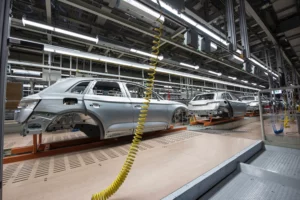Argentina has made a significant strategic move to enhance its automotive industry’s global competitiveness.
Under the leadership of Economy Minister Luis Caputo and President Javier Milei, the country has substantially reduced tariffs and taxes.
This reduction specifically targets the automotive sector, with the goal of boosting exports and streamlining processes.
The automotive industry, integral to Argentina’s industrial output and a key employment sector, is set for transformation.
Key reforms include drastic cuts in tariffs for automotive molds, essential for manufacturing.

Tariffs on metal molds have been slashed from 35% to 12.6%, and for plastic injection molds, from 24% to 12.6%.
Moreover, Argentina has introduced “Repostock,” a systematized and digital framework to continue the exemption from export sales duties for incremental exports initiated in 2021.
This move will facilitate smoother and more efficient export processes, further enhancing the sector’s export potential.
In a noteworthy development, Argentina has agreed with Brazil to mutually recognize automotive model tests.
This collaboration will simplify regulatory processes and eliminate the need for duplicate testing, saving time and resources for manufacturers operating across both countries.
These reforms go beyond immediate economic gains, aligning with global trends in the automotive industry toward sustainability and advanced technology.
Argentina’s proactive reforms reflect a strategic adaptation to global economic shifts and market demands.
In short, this sets a potential benchmark for other nations looking to modernize their industrial sectors and boost economic growth.

